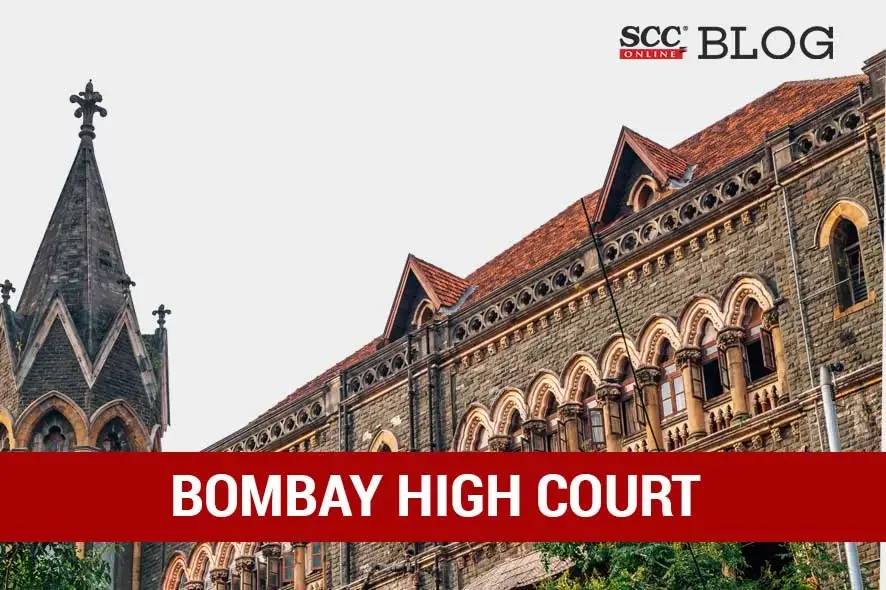Bombay High Court: In an application under Section 439 of Criminal Procedure Code, 1973 (‘CrPC’) filed by person facing trial for offences under Section 8(c) read with Sections 20(c) and 29 of Narcotic Drugs and Psychotropic Substances Act, 1985 (‘NDPS Act’), particularly seeking bail on the ground of breach of Section 42 of NDPS Act, Anuja Prabhudessai, J. expressed doubt on the recovery of contraband and granted bail to the applicant.
Factual Matrix
As per the prosecution case, the team of Anti Narcotic Cell, was deputed for tracing an absconding accused. The NCB team saw a person at a certain place carrying two bags, whose conduct appeared suspicious to the team after he tried to flee away from the spot after noticing the team. The NCB team apprehended him, and during the search, 22 Kgs of Ganja were recovered from him. Based on information disclosed by him, another person was arrested in possession of 10 Kg ganja and the applicant was arrested on 6-07-2021 in possession of 50 Kg ganja.
Application for bail before the Sessions Judge was dismissed since the applicant was found in possession of a commercial quantity of contraband, compliance with Sections 42 and 50 of NDPS Act and indictment placed under Section 37 of NDPS Act.
Court’s Analysis of Section 42 of NDPS Act
The Court perused the provision under Section 42 of NDPS Act dealing with the power of entry, search, seizure and arrest without warrant or authorization. It further referred to State of Rajasthan v. Jagraj Singh, (2016) 11 SCC 687 and Boota Singh v. State of Haryana, 2021 SCC OnLine SC 324 to hint towards Supreme Court’s observations that “section 42(1) indicates that any authorized officer can carry out search between sunrise and sunset without warrant or authorization. The scheme indicates that in the event the search has to be made between sunrise and sunset, the warrant would be necessary unless the officer has reasons to believe that a search warrant or authorization cannot be obtained without affording the opportunity to the offender to escape and the grounds of belief have to be recorded.” Citing Union of India v. Mohd. Nawaz Khan, (2021) 10 SCC 100, the Court noted Supreme Court’s reiteration that writing down information on its receipt should normally precede search and seizure by the officer, but in exceptional circumstances warrant immediate and expedient action and the information may be written down later along with reasons for delay. Also, the compliance with Section 42 being a question of fact should be raised during trial.
Instant Facts
Coming back to the instant facts, the Court highlighted the undisputed fact of search and seizure being conducted between sunset and sunrise without any warrant/authorization or compliance with Section 42 of NDPS Act. For the instance being projected as a chance seizure and impossibility for compliance with Section 42, the Court noted that one accused in possession of 22 Kg ganja was arrested on 1-07-2021 leading to another accused and thereafter the applicant who was portrayed as the person from whom ganja was purchased, and the NCB team proceeded to his house followed by alleged recovery of 50 Kg ganja from his residence.
Court’s consideration — Should NDPS bail be granted for commercial quantity of contraband?
The Court pointed out that “the co-accused had disclosed the name of the Applicant as well as his address. Hence, prima facie it was not a case of chance recovery or seizure in the normal course of investigation, but it was on the basis of specific information given by the co-accused.” It further noted that the information was given at 3 PM, but the search and seizure was conducted after sunset, while there was no excuse on part of the prosecution that the empowered officer did not have sufficient time to obtain warrant or authorization without affording opportunity to the applicant to escape or conceal the evidence. The Court expressed that “prima facie the search and seizure, which is in contravention of the mandatory provisions of Section 42 of the NDPS Act prima facie makes the recovery doubtful.”
The Court also pinpointed towards the records indicating that NCB took samples of contraband without recourse to Section 52-A of NDPS Act. The Court referred to Simarnjit Singh v. State of Punjab, 2023 SCC OnLine SC 906 wherein, it was observed that drawing samples from all the packets during seizure was not in conformity with the law laid in Union of India v. Mohanlal, (2016) 3 SCC 379 and creates a serious doubt on prosecution case regarding recovery of contraband.
The Court observed that the instant facts and circumstances raised a reasonable doubt regarding involvement of the applicant, a young boy aged 22 years, having no criminal antecedents, in the said crime. The Court relied on Rabi Prakash v. State of Odisha, 2023 SCC OnLine SC 1109 and a catena of cases regarding prolonged custody infringing fundamental right guaranteed under Article 21 of the Constitution of India.
Therefore, the Court granted bail to the applicant while stating the conditions for grant of such bail including restriction on leaving the State.
[Shivraj Gorakh Satpute v. State of Maharashtra, 2023 SCC OnLine Bom 1996, Order dated 15-09-2023]
Advocates who appeared in this case :
For Appellant: Advocate Aashish Satpute
For Respondent: Additional Public Prosecutor A.A Takalkar









